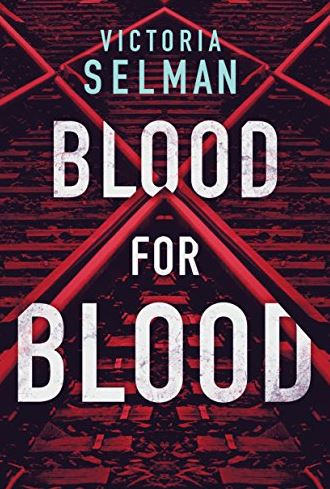Debut author Victoria Selman discusses how writing what you know can be interpreted by the author.

“Write what you know,” is both the best and the worst piece of writing advice you’ll ever receive.
In a world where Harry Potter still reigns supreme and readers can’t seem to get enough of serial killer thrillers and zombie fantasy- why are we being told that to be authentic we must also be autobiographical?
Or does it go deeper than that?
Like so many of us, my creative writing tutor encouraged us to use our own lives to inform our fiction.
‘Write what you know,’ she said. ‘It’s the only way to be believable.’
The advice made me despair.
As a North London soccer mum whose world centres almost entirely around my kids, I couldn’t see I had anything of interest to draw on. A shopping list would make better reading than the story of my life.
And yet more than anything, I wanted to write. In fact, from the age of seven when I wrote my first ‘novel’ (an ambitious and rather bizarre story about talking dogs and evil sorcerers that filled a whole A4 pad), becoming a ‘proper author’ has been my greatest ambition.
But how was I going to fulfill that dream by sticking to the limited (and rather dull) subject of what I know?
It took me a while to realise that ‘writing what you know’, could be very different to what I’d first thought. After all, if Mary Shelley had stuck to what she knew, she’d never have written Dracula. And John Wyndham would certainly never have produced The Day of the Triffids; a brilliant apocalyptic novel about killer plants taking over the world.
Clearly neither of them penned stories based on their life experiences, but they did use their lives to give colour to their work. Because, as I came to realise, writing what you know doesn’t have to mean writing about events, it can also be about drawing on your emotions and the subjects that interest you.
In many ways, my debut novel, Blood For Blood is a case in point. The book revolves around an ex special forces criminal profiler, called Ziba MacKenzie, who is an expert on human behaviour and can incapacitate a guy twice her size with a double palm strike through the centre line.
I’m not ex SF and although I have recently joined a martial arts class at our local gym, I still have to ask my husband for help opening jam jars and hefting the groceries. Yet, despite that I am writing what I know.
Profiling and behavioural analysis have always fascinated me. I’ve taken several courses on the subject and have even managed to convince my sons I can read their body language so I know when they’re lying. (Tip to other parents: It works MUCH better than telling them you have eyes in the back of your head!)
I’ve also used what I know to develop Ziba’s backstory. My father didn’t flee Iran during the revolution. I don’t operate in the hostile male dominated environment of Scotland Yard. And I’m not tormented by the murder of my husband and the question of who killed him. But I do know what it feels like to lose someone you love, and to feel like you don’t always fit in.
It’s taken me a while, but I’m finally beginning to understand what my tutor meant when she said, ‘Write what you know.’
I’m never going to be a kick-ass criminal profiler who hunts killers by thinking like them. But I can use my interests and emotions to bring Ziba to life. And I can enjoy every minute of doing it.
Victoria Selman’s Debut Dagger shortlisted novel, Blood For Blood, went straight to #1 on the UK Kindle Chart and #2 in the US after its early release on Jan 1st. Her second novel, Nothing To Lose, also featuring profiler Ziba MacKenzie, comes out at the end of March. As well as writing, Victoria co-hosts the new true crime podcast, Crime Girl Gang in which she and two other crime writers examine cold cases and then ‘solve’ them from a fictional perspective.
Comments